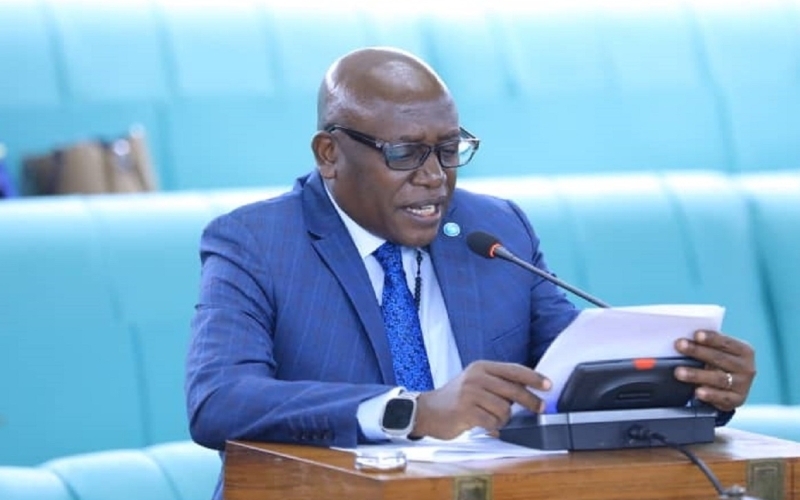
The Committee on Education and Sports has recommended that eligibility for registration as a teacher is a degree in education or a relevant degree, and a post graduate diploma in education for pre-primary, primary and secondary school teachers.
The recommendation is contained in the report on the National Teacher’s Bill, 2023 that was presented by the Committee Chairperson, Hon. James Kubeketerya during the plenary sitting on Tuesday, 26 November 2024.
“The committee observes that the Bill intends to ensure that the teaching profession is regularised and standardised, and the requirement of a Bachelor’s degree for a teacher will go a long way in achieving this,” read the report in part.
The Bill also establishes the National Teacher’s Council (NTC), as a body corporate which the committee welcomed but recommended that its membership is revised to include different categories of representatives concerned with the teaching profession.
“The committee observes that the council is composed of more persons who are not engaged in active teaching compared to those engaged in active teaching. Only three out of the seven members of the council are engaged in active teaching,” Kubeketerya said.
The committee further recommended that the Bill should provide for collaboration between NTC and the National Curriculum Development Centre (NCDC).
The Committee’s recommendation was premised on the observation that whereas Clause 10 of the Bill provides for collaboration between NTC and the National Council for Higher Education, it stands to leave out other critical agencies like the NCDC.
“Clause 10 should be amended to include collaboration with other government agencies and to provide for collaboration in training of trainers and accreditation for continuous professional development programmes for teachers,” he said.
The Bill also proposes introducing a one-year internship programme for teachers but the committee disagreed with the proposal, arguing that it is not fair for a teacher to undertake school practice and internship.
“The committee observes that the period of one year is too long after a teacher has completed a degree and is subjected to another year of training, in addition to school practice. Teachers should only be required to do teaching and school practice,” Kubeketerya said.
There was however a minority report that was presented by Hon. Joseph Ssewungu (NUP, Kalungu West County) whose areas of dissent included requirement of degree qualifications for teachers.
He recommended that government should put in place programmes for the gradual upgrade of teachers to acquire the degree qualifications and the cost should be borne by government.
“Teachers should not be mandated by law to have a degree to teach. However, government should encourage teachers to upgrade their qualifications gradually,” Ssewungu said.
He added that where the government requires a degree, it should provide a salary commensurate to a degree qualification, as well as improve the working environment for schools as most structures are dilapidated, teachers lack teaching materials and the student teacher ratio is high.
He also said that establishment of the NTC is against government policy on rationalisation of government agencies and public expenditure.
“Instead of creating a council of seven members, the government should direct those funds to the districts particularly to the inspection department to oversee and supervise the performance of teachers in schools,” he said.
The Minister of State for Education and Sports (Higher Education), Hon. Chrysostom Muyingo said that the new law is intended to cure teacher absenteeism, ineffective teaching and low qualifications, lack of teacher regulation and lack of standards for the teaching profession, among others.
“The Bill embeds the new government policy by professionalising the teaching profession in order to improve the development and management of teachers,” Muyingo said.
He added that the Bill also ensures that the policy changes in the teaching profession are brought in an orderly process.
Speaker, Anita Among deferred debate on the Bill to Wednesday, 27 November 2024.













